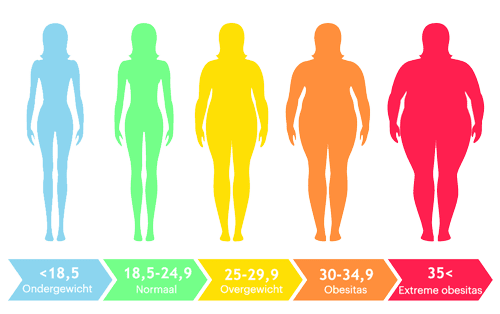
The Body Mass Index (BMI), what does that mean?
Share
When you start losing weight, one of the first things that is often measured is your BMI. But what is that now and how much does it say about your ideal gewicht?
The Body Mass Index, also known as the Quetelet index, has been a quick and convenient calculation for nearly 200 years that provides an indication of ideal weight. The formula was developed in 1830 by the Belgian astronomer and mathematician Adolphe Quetelet, and it remains a good way to measure whether you have a healthy weight to this day. It is a formula based solely on two variables: your body weight and your height.
The formula is the body weight (in kilograms) divided by the square of the height (in meters).
What is a healthy BMI?
The World Health Organization indicates that a result between 18.5 and 25 represents a healthy weight. Between 25 and 30 is overweight, where you need to be careful not to gain more weight but are not yet in the danger zone. A BMI above 30, however, indicates severe overweight. Studies show that people with a BMI between 30 and 35 live on average 3 years shorter and have a significantly increased risk of type 2 diabetes and cardiovascular diseases compared to those with a healthy BMI. A BMI above 35 is referred to as morbid obesity, and the risk of severe health problems increases exponentially. If you have a BMI below 18.5, you need to gain weight to prevent health issues related to being underweight.
Does the BMI calculation always work?
BMI is widely regarded as an easy and effective way to calculate whether you are at your ideal weight, but it doesn't always work. For example, Dutch shot put champion Rutger Smit went to the Olympic Games in London with a BMI of 33.5. According to the BMI index, he would be dangerously overweight, but Smit was, of course, in good health. He had so much spiermassa that this calculation did not apply to him. For people with too little muscle mass, the BMI also gives a distorted picture, which is why factors such as muscle mass and body fat percentage should also be considered to have a complete view of your health.
FITAGE scale with BMI measurement
On the FITAGE bluetooth scale find the BMI, muscle mass, and body fat percentage all with the push of a button. Prevent health issues caused by overweight and start working with FitAge's nutritional advice to move towards a healthy BMI.



